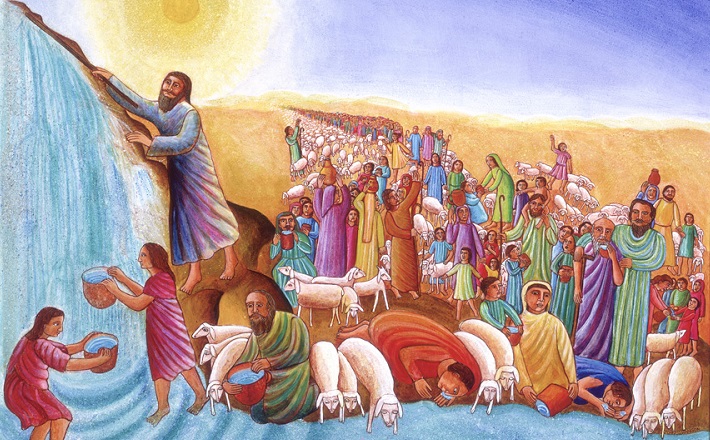Commentary on Preaching Series on Psalms
[This is Week 2 of a 5-week preaching series on Psalms.]
[This is Week 2 of a 5-week preaching series on Psalms.]
[This is Week 2 of a 5-week preaching series on Psalms.]
Week 2 (June 18, 2017)
Preaching text: Psalm 13; accompanying text: John 6:35-40
A Prayer for Help (also called “a lament psalm”)
Psalm 13 is a prayer for when the bottom drops out. It is a prayer for help — which is the most common type of psalm. Roughly 1/3 of the psalms are prayers for help. These psalms are cried “out of the depths” (130:1) or when “the waters have come up to my neck” (69:1). As such, these psalms give expression to the deepest moments of human pain. But they do so in a way which claims the promise of God’s presence in the midst of our suffering and also the promise that the God-who-is-with-us will preserve us from evil and bring us to a new day when the sun will rise and light will dawn. An important part of these psalms are the expressions of anger, confusion, questioning, and despair: “How long, O Lord?” The heart of this type is “the ask” — the request for help. Here, the ask is “answer me” and “give light to my eyes” (v. 3). These psalm also express trust (“I trusted in your steadfast love”) and they promise to praise God once the crisis has passed (“I will sing to the Lord”). We will come back to these two elements in the next two weeks. Brueggemann calls these poems “psalms of disorientation” — they admit that life is not as well-ordered as a simple Sunday School faith may pretend. They acknowledge that life is really messy, and they protest to heaven that things should not be as they are. And these psalms, through prayer, evoke action from God — they help move the sufferer to a new place.
These psalms are important for several reasons. First, they give us words for the deepest, darkest nights of our lives — when the bottom drops out, when the pain seems too much to bear. Second, the tell us that God is big enough for everything we’ve got — our pain, our anger, our questions, our doubts. They even suggest that genuine biblical faith is comfortable challenging God. And that God is present with us precisely when it feels like God isn’t there.
Hymn Suggestions:
- “What a Friend We Have in Jesus”
- “Create in Me a Clean Heart O God”
- “Kyrie Eleison” (Lord Have Mercy)
- “Lord Teach Us How to Pray Aright”


June 18, 2017